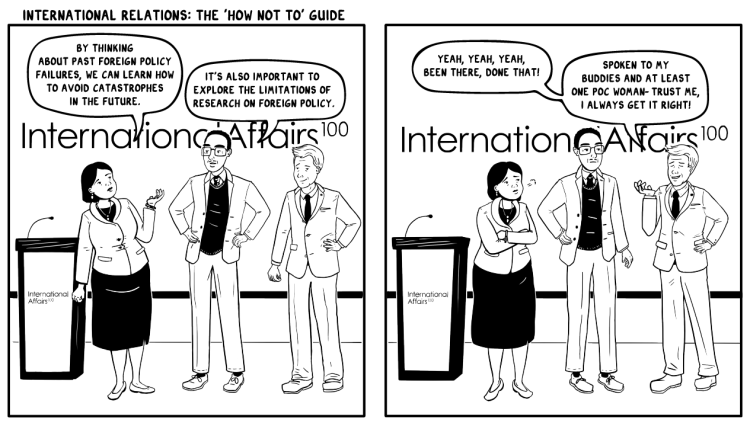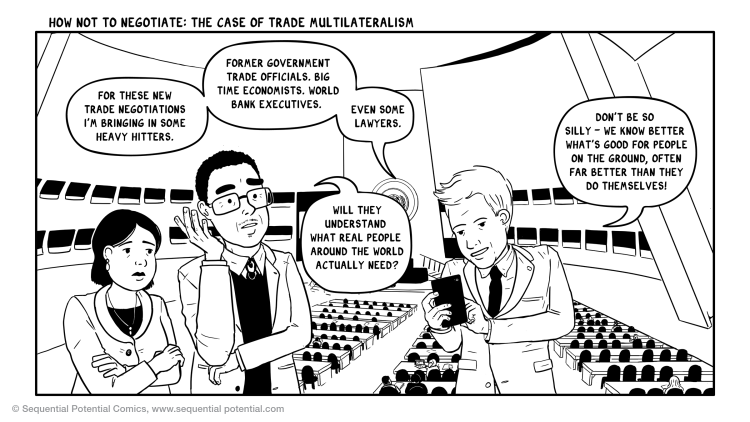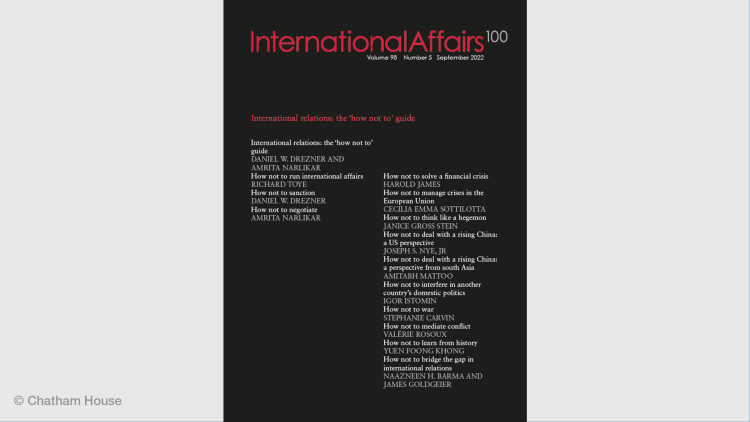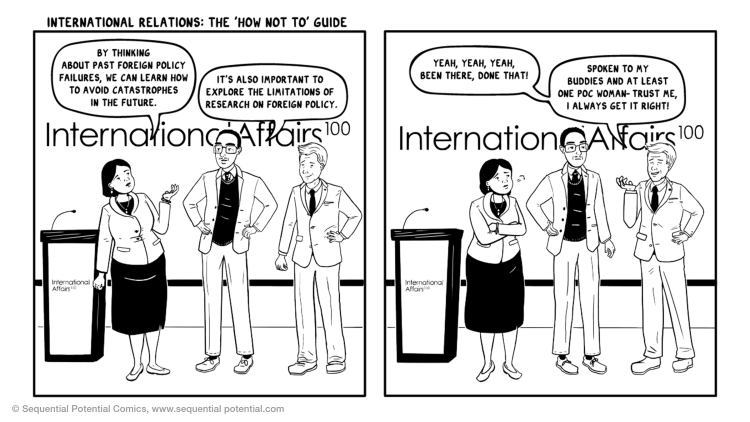- Home
- Publications
- Peer-Reviewed Articles
- International relations: the ‘how not to’ guide: Introduction to the International Affairs centenary special issue
Amrita Narlikar / Daniel Drezner
International relations: the ‘how not to’ guide – Introduction to the International Affairs centenary special issue
Abstract
In the century of International Affairs' existence, there have been a lot of catastrophic critical junctures when a different policy decision, underpinned by an alternative epistemic framing, might have led to a more peaceful and prosperous world. In this special issue, we consider the well-intentioned efforts of humanity over the past century that turned out badly. Much of foreign policy analysis seeks to replicate successes; we humbly ask whether it might make more sense to examine how to avoid disastrous failure. In this introductory article we develop a concrete definition of policy failure and provide a motivation for why the study of failures is relevant for the coming century. We suggest a Hippocratic Oath for policy-minded scholars, and advance guidelines to help go beyond Barack Obama's ‘Don't do stupid shit’ injunction and also guard against potential policy paralysis. Finally, we offer conclusions derived from the other articles in this special issue that are relevant for both the study and practice of international relations. Armed with these insights, practitioners—and the researchers who advise them—may stand a better chance of avoiding some of the worst pitfalls of international relations; occasionally, together, we may even get some things right.
Regional Institutes
Research Programmes
Journal
International Affairs
Volume
98
Number
5
Pages
1499-1513






